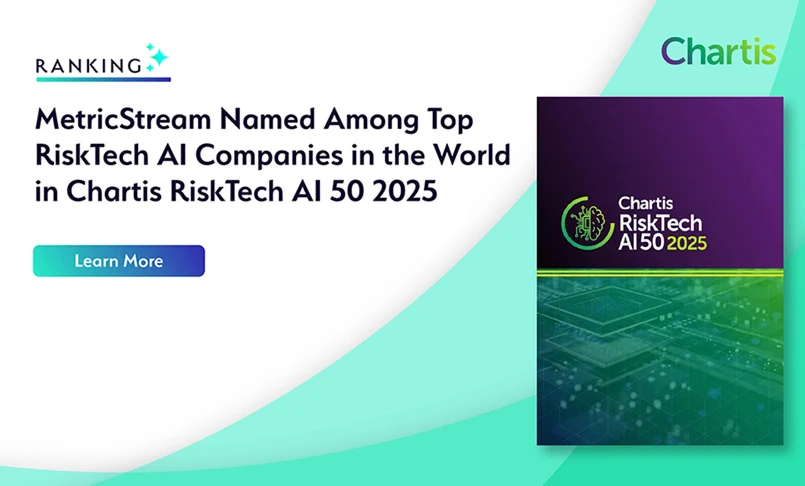UK's Extended Producer Responsibility for Packaging Regulation: How to Prepare
- ESGRC
- 11 April 23

Introduction
More than 9.2 billion tons of plastic has been produced between 1950 and 2017, of which 7 billion tons has ended up in landfills where it will take hundreds of years to biodegrade. The equivalent of a garbage truck full of plastic waste finds its way into the oceans every minute. If the above numbers are not shocking enough, a recent report by earth.org found that if no action is taken, plastic pollution will grow to 29 million metric tons per year in less than 20 years. At the same time, the production of new plastic products requires the use of fossil fuels that add to greenhouse gas emissions.
Plastic pollution and its contribution to climate change is already proving to be a significant threat to the lives and livelihoods of millions across the world. As a result, there is now increasing regulatory scrutiny on Environment, Social, and Governance (ESG) matters, and new frameworks and standards are being introduced to help organizations account for and ensure corporate responsibility and relevant action in these areas. The latest entrant is the UK’s packaging waste reform or the Extended Producer Responsibility for Packaging (EPR).
What is the Packaging EPR Regulation?
From February 28, 2023 onward, packaging producers are required to comply with EPR reporting requirements. Some of the key highlights include:
- The packaging EPR scheme aims give organizations in England, Northern Ireland, and Scotland an incentive to reduce and recycle packaging
- Wales will also be added to this list within a few months
- The regulations are applicable to:
- Any organization based in the UK that manufactures, handles, and supplies more than 25 tons of packaging in a year
- Has an annual turnover of more than £1 million
- Large scale producers of packaging materials are required to report their findings to the Environment Agency as well. These are organizations with
- More than £2 million of annual revenue
- More than 50 tons of packaging handled annually
- Organizations are expected to collect and report data on the volume and type of packaging they use through the year
- Submission of reports will start from October 2023
- From 2024 organizations will have to pay an EPR fee for the cost of collecting and treating waste packaging material that is currently handled by local civic bodies
What Does the EPR Regulation Aim to Do?
The EPR regulations have been implemented to encourage environmentally sustainable practices. Businesses use large volumes of packaging materials, and with these regulations in place the UK hopes to drive wider adoption of reusable and refillable packaging. This will have a significant impact on the amount of plastic waste ending up in landfills and help reduce fossil fuel emissions by reducing the production of new packaging materials. Lawmakers in the UK argue that the reduction in virgin packaging production will help cut down greenhouse emissions by at least 2.2 million tons by 2023. This is a significant metric that will contribute to the country’s efforts to achieve net zero goals by 2050. It will also help reduce the burden of handling packaging waste on taxpayers and local councils. In fact, this shift of cost to the producers of packaging material will make approximately £1.2 billion of funding available to local authorities annually for managing used packaging. The UK Government has already published a guidance on EPR reporting and intends to launch a digital platform on the regulation. The EPR regulations come on the heels of the EU’s Corporate Sustainability Reporting Directive (CSRD). Both of these reporting standards stress on sustainability reporting as the world steps up its efforts to achieve net zero by 2050.
As the climate crisis worsens, there is an increased demand for accountability and positive action from corporates to help the world reduce emissions and plastic pollution. ESG risks can also negatively impact bottom lines and profitability. Failure to meet sustainability standards, and non-compliance with ESG reporting frameworks and regulations can have severe consequences. There are financial repercussions of non-compliance as well as severe damage to brand image and corporate reputation. Modern customers do not hesitate to stop engaging with organizations that fail to meet sustainability standards and this can have a long-term impact on revenues as well. Organizations now have to deploy robust, intelligent technology solutions to manage ESG compliance and reporting.
Stay Ahead with MetricStream
The climate crisis is escalating and positive action on sustainability is no longer a good to have measure but a business imperative. Even as global leaders vow to address climate change on a war footing, there is increasing pressure from stakeholders including customers and investors for corporate accountability and action on these fronts. New regulations like the UK’s EPR are being introduced across the world to ensure sustainable business practices and corporate responsibility. Organizations can no longer manage ESG compliance in a haphazard manner as the cost of non-compliance is severe. Investing in a robust ESG platform is a sound business strategy that will set the business up for long term compliance health and sustainable growth.
MetricStream’s ESGRC solution is built on the AI-powered MetricStream GRC platform and is designed to simplify and streamline ESG reporting and compliance. It can help your organization:
- Ensure compliance with ESG reporting standards and frameworks
- Gain real time ESG intelligence
- Manage disclosure frameworks and reporting
- Simplify content integration
- Identify ESG issues and recommend remedial ESG-related actions
- Map common requirements across multiple ESG standards
- Identify relevant metrics and documents pertaining to ESG risk
With MetricStream’s ESGRC solution your organization can ensure sustainable growth and increase the confidence and trust of all stakeholders with a healthy ESG rating.
Interested to learn more?
Sign up for our upcoming webinar on Managing the E in ESG: The Role of Technology and Carbon Accounting in Achieving Environmental Sustainability
MetricStream and Greenly have partnered to speak on a how carbon accounting is necessary in achieving sustainability goals. Our guest speaker, Hasitha Sridharan, from Greenly and I will discuss the EPR Regulation as well as other reforms and regulations developing around the world. You will also gain insights into:
- The latest trends and best practices in environmental sustainability and the importance of the "E" component in ESG
- The role of ESG technology in measuring, managing, and reporting your environmental impact and how it can provide insights into your energy usage, greenhouse gas emissions, and other environmental metrics.
- How to leverage carbon accounting to track and report carbon emissions, a critical step in reducing your carbon footprint.
- The importance of accurate data collection and reporting in carbon accounting
- The benefits of leveraging ESG technology and carbon accounting, including improved operational efficiency, reduced costs, enhanced reputation, and increased stakeholder engagement.
Interested to learn more about how MetricStream can help with your ESG requirements. Request a for personalized demo now!
Check out new ESG resources:
eBook: ESG Buyer’s Guide
Infographic: 7 ESG Trends for 2023
Article: TCFD Recommendations and their Significance for Your Organization








